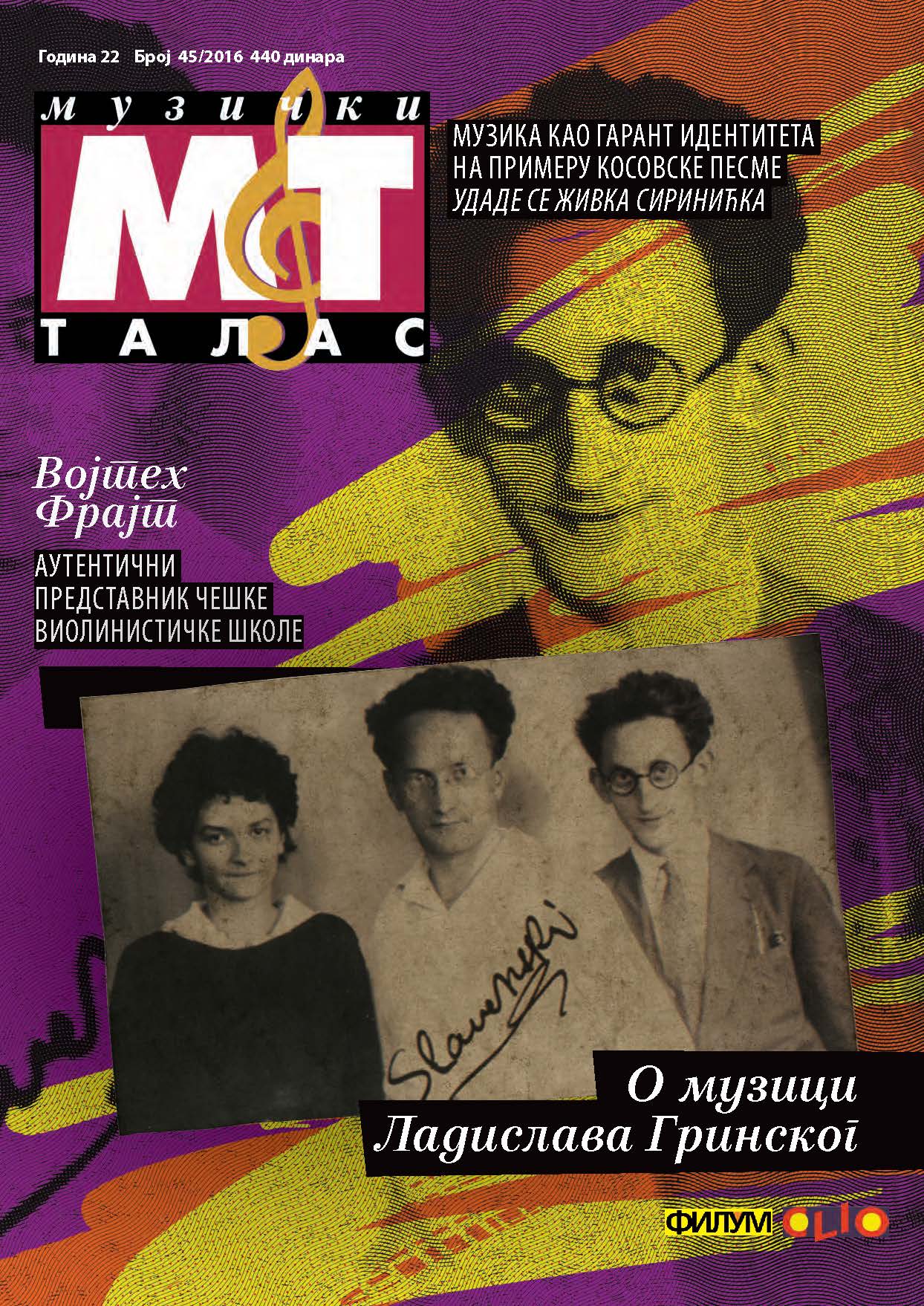ВОЈТЕХ ФРАЈТ – АУТЕНТИЧНИ ПРЕДСТАВНИК ЧЕШКЕ ВИОЛИНИСТИЧКЕ ШКОЛЕ
VOITĔCH FRAIT – AUTHENTIC REPRESENTATIVE OF CHECH NATIONAL VIOLIN SCHOOL
Author(s): Hristina MedićSubject(s): Music
Published by: Izdavačko preduzeće CLIO
Keywords: Voitech Frait; Chech violin school; Beethoven; romance; strophe; interpretation
Summary/Abstract: Within two introductory chapters of this study the impact of Czech musicians in the cultural life of Belgrade has first been examined, since Voitech Frait came from a Czech family of musicians (originating in Plzen), that moved to the Serbian capital in 1903. In Belgrade he started his education and performed series of recitals and concert performances as a soloist of the Royal Guard Orchestra. He continued his education at the Prague Conservatory in the class of Frantisek Ondricek, interrupted due to his joining to the Serbian army in the First World War. This Czech virtuoso and pedagogue has followed the new trends in teaching and interpretation of the music for violin, which was first launched by a violinist Lambert Massart, his professor at the Paris Conservatory. These novelties have been primarily related to a larger and more functional use of vibrato, which has fulfilled the requirements of the new romantic aesthetic by increasing the expressiveness and sonority of the violin tone. Massart’s „learning“ fundamentally has changed the relationship with the violin media and technique of playing this instrument. Czech violinists of that time (laureates in Massart’s class) have accepted this new „learning“ and have built on its achievements their national school of violin. The central part of this study is devoted to the increase of the Czech school, because its main representatives have also been Voitech Frait’s teachers at the Prague Conservatory. New perspective of performing (achieved by using vibrato) has changed until then recognizable „sound picture“ of many compositions. This has been referred also to the Beethoven’s Violin Concerto. The recordings of this work from the beginning of the last century reveal that the majority of performers (by intensive use of vibrato) have emphasized his extremely subjective tone and poetry of solo section. The results of this „new“ interpretive reception of the Beethoven’s concert was confirmed by musicological researches in the late 20th century, finding in its structure, orchestration and expression elements that have more linked to the Romantic style of music than to the Classicism. Since the Beethoven’s Violin Concerto has occupied a central place in Voitech’s concertante repertoire, the largest part of this study is devoted to the interpretation of his work. Analysis of the Radio Prague recording from 1952 of Voitech’s interpretation is based on the characteristics of the Czech violin school of which he has been the representative, followed by the acceptance of new interpretative and musicological perspective of the Beethoven’s concerto, and justified by the comparison with recordings of this work from the same period of top soloists: Oistrakh, Francescatti, Menuhin. The symphonic characteristics of the Beethoven’s Violin Concerto, Voitech’s experience as a soloist and orchestral musician (concertmaster) have been crucial for the specific nature and quality of his interpretation of this work. Apart from the said cited literature, until now unknown archive material (concert programs, biographical notes, photos) from the legacy of the family Frait-Skarka and Voitech’s unpublished recording of the Beethoven’s Violin Concerto from the archive of Radio Prague have been used in this study, without which this study would not have been possible. Documentary material in this study has been published for the first time.
Journal: Muzički talas
- Issue Year: 22/2016
- Issue No: 45
- Page Range: 19-47
- Page Count: 29
- Language: Serbian
- Content File-PDF

